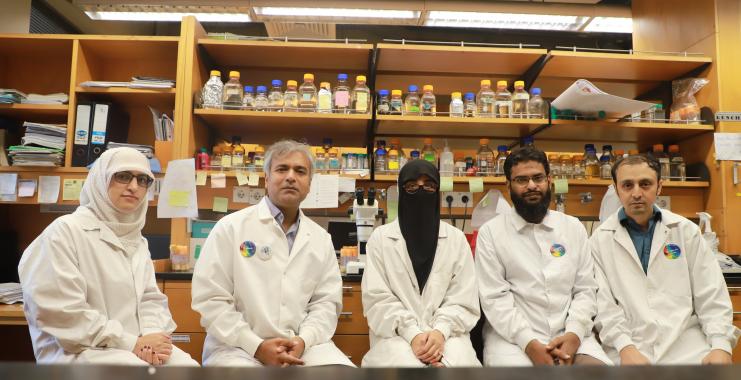
LUMS continues to be at the forefront of research and discovery. Tariq Lab at LUMS, a pioneering epigenetics lab in Pakistan and the only fruit fly lab in the country, has discovered over 200 new genes which are involved in the maintenance of cell identities. These results are reported in a recently published article from Tariq Lab in the Epigenetics and Chromatin journal. This is the first time such cutting-edge work in this field has been accomplished in Pakistan, which has direct implication in the field of cancer biology and regenerative medicine.
Led by Dr. Muhammad Tariq, Associate Professor LUMS, a team of PhD students at the Lab have been working to determine how identities of cells established during embryogenesis are maintained during subsequent development, and how cell fates can be changed. Their work has been performed in fruit flies, which is an excellent model system in science.
The team developed a new approach to study factors involved in the maintenance of cell fates. They used RNA interference (RNAi) methodology to discover novel factors involved in anti-silencing, the trithorax group (trxG) of proteins known to antagonise polycomb group (PcG) silencers. They developed a highly sensitive fluorescent reporter, and used it to discover anti-silencing factors that may facilitate trxG in the maintenance of cell fates in fruit flies.
The data was then analysed to generate a list of statistically significant hits that could be considered as trxG candidate genes. Analysis revealed that it had led to the discovery of 217 genes, which behaved as trxG factors when their function was depleted in the cells.
Jawad Akhtar, a PhD student, embarked on developing a molecular understating of ENOK, a fruit fly gene, as an anti-silencing factor linked to trxG and its role in the maintenance of cellular identities. With his team, they have discovered that ENOK physically associates with genes, which are normally bound by trxG factors. Moreover, they have proposed that ENOK inhibits a subset of polycomb group (PcG) factors, which are responsible for turning genes into an off state, and cause long term silencing or repression. By counteracting PcG, ENOK facilitates trxG in its anti-silencing act and ensures cell type specific genes remain in an on state during development.
Expressing his pleasure at the discovery, Dr. Tariq said, “It’s the fulfilment of a dream, and a commitment I had with LUMS, to establish a cutting-edge research programme in epigenetics in Pakistan. Building it from scratch, it was a long hard journey but full of excitement. It reassures us that if you have clarity of vision, a hardworking team and the kind of unwavering support from LUMS, we can achieve high quality research accomplishments here in Pakistan, without a doubt.”
This groundbreaking work was initiated by Ms. Zain Umer, a PhD candidate at LUMS. Along with Mr. Akhtar, the team also consisted of Dr. Saima Anwar, Muhammad Haider Farooq and Najma Shaheen. Tariq Lab also extends their gratitude to Professor Michael Boutros, Division Head at the German Cancer Research Center (DKFZ) and Dr. Aziz Mithani, a computational biologist.









